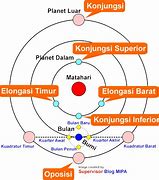🤑 What is the Stake sign up bonus?
At the moment, there is an exclusive BRASIL247 code that you can use when signing up to Stake.com for the first time. This will simply match your first qualifying deposit by 200% up to $2,000 to give you lots of extra gaming credit to play with.
Pros and cons of making a Stake referral
Don’t let the lack of a referral code stop you from signing up to Stake.com. After all, there is an exclusive BRASIL247 code that you can use when registering your first account that will match your first qualifying deposit by 200% up to $2,000.
This means that you can start playing all of those thousands of slots and table games with lots of promo credit. Here is a quick rundown of how you can claim this deal:
Once you have done all of this, you should find that the promo credit has automatically been added to your account. Now you can get down to the fun of playing over 2,500 games at Stake.com with a 200% boost in your gaming credit.
Take advantage of the Stake.com Bonus Code
If you click on the Promotions tab in the sidebar at the Stake.com site, you will find plenty more deals for existing customers. Most of these work to give you cash prizes as a result of your gaming. However, if you are in the mood to take a healthy share of a massive prize pool, you’ll need to check out one of the following deals in this table:
Win cash prizes via the races
Stake.com loves to host lots of races which are special promotions that give you the chance to win cash prizes just by wagering more than anyone else. For example, there are daily races that set you the task of being among the top 15 most prolific gamers each day and if you manage to do this you could take some of the $100,000 prize pool. Note that there are also Multiplier Races that do the same, just that you have to hit certain multipliers on select slots.
You will find lots of great raffles at the Stake.com casino site. Pick of the bunch has to be the Weekly Raffle that could see you winning a share of the $75,000 prize pool just by getting a winning ticket. Here you just need to wager at least $1,000 each week and doing so will get you one raffle ticket. Remember that there’s nothing stopping you from wagering more to get even more chances to win.
Enjoy the special tournaments
Stake.com regularly hosts special tournaments with acclaimed developers such as Evolution Gaming and Pragmatic Play. This means that you just have to play a certain game like Crazy Pachinko or one of the Pragmatic Slots, and if you play it right, you could take a slice of a huge prize pool.
Get social with these challenges
You’ll find plenty of challenges at Stake.com and the best of those that aim to get you to be a little more social in your gaming. Take the Stake.com Telegram challenge where you just have to follow the brand on its Telegram channel to get special challenges that could see you winning big prizes.
Elsewhere you will see special challenges on the Stake forum and there are even deals that see you playing against star gamers like the epic Stake vs Eddie promo. Of course, you will have to deposit and spend your own money on your gaming to be in with a chance of winning any prizes with these deals. But there is no doubt that they can all add an extra level of interest to your casino gaming.
What is a Stake referral code?
A referral code for Stake would be a special offer that gives you rewards for bringing a friend to the crypto casino site. It ultimately means that you’ll get bonus credit and the casino will get another new customer - just for you getting a friend to sign up to the gaming platform.
So to make a Stake referral, you would normally have to undertake the following steps:
Just note that Stake.com doesn’t currently have any of these deals, but you can find plenty of other top promos below.
🔎 How do I use a bonus code on Stake?
It depends on which kind of deal you are getting. However, to use the exclusive BRASIL247 promo code, you just have to enter in the code when you sign up to Stake.com, make your qualifying deposit and then you will receive your bonus credit.
Level-based progression
In many role-playing games, such as games derived from Dungeons & Dragons (D&D), an accumulation of a sufficient number of experience points (XP) increases a character's "level", a number that represents a character's overall skill and experience. To "level" or "level up" means to gain enough XP to reach the next level. By gaining a level, a character's abilities or stats increase, making the character stronger and able to accomplish more difficult tasks, such as safely battling stronger enemies, gaining access to more powerful spells or combat techniques, or resolving more difficult social challenges.
Typically, levels are associated with a character class, and many systems allow combinations of classes, allowing a player to customize how their character develops.
Some systems that use a level-based experience system also incorporate the ability to purchase specific traits with a set amount of experience. For example, D&D 3rd Edition bases the creation of magical items around a system of experience expenditure (known as burning xp). The d20 System introduced the concept of prestige classes, sets of mechanics, character developments, and requirements that can be leveled up.
Some games have a level cap, or a limit of levels available. For example, in the online game RuneScape, no player can exceed level 120, which requires 104,273,167 experience points to gain, nor can any single skill gain more than 200 million experience points. Some games have a dynamic level cap, where the level cap changes over time depending upon the level of the average player.
Free-form advancement
Free-form advancement is used by many role-playing systems including GURPS, Hero System or the World of Darkness series. It allows the player to select which skills to advance by allocating "points". Each character attribute is assigned a price to improve, so for example it might cost a character 2 points to raise an archery skill one notch, 10 points to raise overall dexterity by one, or it might cost 20 points to learn a new magic spell.
Players are typically free to spend points however they choose. Some games simplify free-form advancement by offering packages or templates of pre-selected ability sets.
A cash-in experience advancement system uses experience points to "purchase" character advancements such as class levels, skill points, new skills, feats, and base attribute points. Each advancement has a set cost in experience points with set limits on the maximum bonuses that can be purchased at a given time, usually once per game session. Once experience points are used, they are erased or marked as spent from the character record and cannot be used again. Final Fantasy XIII and Warhammer Fantasy Roleplay are examples of games that use a cash-in advancement system.
Since many early role-playing video games are derived from Dungeons & Dragons,[9] most use a level-based experience system.
In many games, characters must obtain a minimum level to perform certain actions, such as wielding a particular weapon, entering a restricted area, or earning the respect of a non-player character. Some games use a system of "character levels", where higher-level characters hold an absolute advantage over those of lower level. In these games, statistical character management is usually kept to a minimum. Other games use a system of "skill levels" to measure advantages in terms of specific aptitudes, such as weapon handling, spell-casting proficiency, and stealthiness. These games allow the players to customize their characters to a greater extent.
Some games, particularly MUDs and MMORPGs, place a limit on the experience a character gains from a single encounter or challenge, to reduce the effectiveness of power-leveling.
"Perks" are special bonuses that video game players can add to their characters to gain special abilities. The term refers to the general usage of "perk" as an abbreviation of "perquisite". Perks are permanent rather than temporary and are progressively unlocked through experience points. The first video game to use the term "perks" to refer to such a mechanic was the 1997 role-playing video game Fallout.
Besides RPGs, perks have been used in various other video games in recent times, including first-person shooters such as Call of Duty 4: Modern Warfare (2007),[10] Call of Duty: Modern Warfare 2 (2009), and Killing Floor (2009), as well as action games such as Metal Gear Online (2008).
"Remorting" (also known as "rebirth", "ascending/ascension", "reincarnating", or "new game plus") is a game mechanic in some role-playing games. Once a character reaches a specified level limit, the player can elect to start over with a new version of the character. The remorting character generally loses all levels, but gains an advantage that was previously unavailable, such as access to different races, avatars, classes, skills, or otherwise inaccessible play areas within the game. A symbol often identifies a remorted character.
The term "remort" comes from MUDs.[11] In some MUDs, players may become immortal characters—administrative staff—simply by advancing to the maximum level. These users are generally expected to distance themselves from gameplay, and interaction with players may be severely limited. When an immortal chooses to vacate this position to resume playing the game—usually from level one just as with any new character—he or she is said to have remorted, "becoming mortal again".[12][13]
Grinding refers to the process of repeating one specific activity over and over. This is done, for example, by repeatedly participating in challenges, quests, tasks and events which reward experience points for performing repetitive, often menial challenges. This definition can also be used in multi-player games, but it is typically displaced by a much more charged meaning. A term intended to describe this style of play without pejorative connotation is optimization, also known as "XP farming".
Power-leveling is using the help of another, stronger player to level a character more quickly than is possible alone.
Games that allow several characters to participate in a single event (such as battle or quest completion), implement various methods of determining how and when experience gets shared between participants. These methods include: only awarding experience to the character whose hit killed the enemy (as in Fire Emblem series); sharing experience among characters (as in D&D); and giving experience based on each character's actions (as in Final Fantasy Tactics). In some online games (for example Dungeon Defenders), it is possible to join a group and gain experience while providing little or no contribution to the group. This type of behavior is referred to as leeching. In games that allow players to gain rewards by kill stealing, this is also considered a form of leeching.
Some players of online games use automated programs known as bots to grind or leech for them in order to progress with minimal effort.[14] This practice often violates the terms of service. Bots are also commonly used in commercial operations in order to powerlevel a character, either to increase the sale value of the account, or to allow the character to be used for commercial gold farming.
Weight & Size 1.28g - 11 1.33g - 11 1.32g - 11 1.35g - 11 1.31g - 13 1.34g - 13 (1) 1.34g - 13 (2) 1.36g - 13 1.38g - 13 1.36g - 15 1.41g - 15 1.41g - 18 1.40g - 19 1.42g -19 1.45g - 19 (1) 1.45g - 19 (2)
Weight & Size 1.28g - 11 1.33g - 11 1.32g - 11 1.35g - 11 1.31g - 13 1.34g - 13 (1) 1.34g - 13 (2) 1.36g - 13 1.38g - 13 1.36g - 15 1.41g - 15 1.41g - 18 1.40g - 19 1.42g -19 1.45g - 19 (1) 1.45g - 19 (2)
Welcome to this guide to getting and using a Stake referral code. Perfect for anyone looking to get more social with their crypto casino gaming.
At the moment, there isn’t any kind of Stake referral program, but there are plenty of deals worth a closer look. You could use the exclusive BRASIL247 code to get a 200% matched deposit bonus up to $2,000, and then there are races, challenges, tournaments and a massive VIP club. All you need to get more from your gaming.
Take advantage of the Stake.com Bonus Code
No Stake referral program just a great VIP program
All good online casinos have some form of reward program and Stake.com won’t let you down here. This is because the brand has a VIP club that has plenty of benefits for its most loyal customers.
It’s a multi-tiered loyalty scheme that features the Bronze, Silver and Gold levels, and then there are three Platinum levels at the top. You’ll have to wager $10,000 before you gain admittance to the Bronze level, but doing so could see you getting a level-up bonus, as well as daily and monthly bonuses and even a rakeback on your losses.
From here, you just have to keep playing to keep rising through the loyalty ranks. You might have to wager $1 million to reach the highest Platinum level, but doing so could see you getting some daily bonuses, bespoke promotions and you could have your own account manager to help you make the most of this crypto casino site.
Activity-based progression
In some systems, such as the classic tabletop role-playing games Traveller, Call of Cthulhu and Basic Role-Playing, and the role-playing video games Dungeon Master,[4] Final Fantasy II, The Elder Scrolls,[5] the SaGa series,[6] and Grandia series,[7] character progression is based on increasing individual statistics rather than general experience points. Skills and attributes grow through exercised use.[8]
Weight & Size 1.28g - 11 1.33g - 11 1.32g - 11 1.35g - 11 1.31g - 13 1.34g - 13 (1) 1.34g - 13 (2) 1.36g - 13 1.38g - 13 1.36g - 15 1.41g - 15 1.41g - 18 1.40g - 19 1.42g -19 1.45g - 19 (1) 1.45g - 19 (2)
Role-playing game unit for measuring a character's progress
An experience point (often abbreviated as exp or XP) is a unit of measurement used in some tabletop role-playing games (RPGs) and role-playing video games to quantify a player character's life experience and progression through the game. Experience points are generally awarded for the completion of objectives, overcoming obstacles and opponents, and successful role-playing.[1]
In many RPGs, characters start as fairly weak and untrained. When a sufficient amount of experience is obtained, the character "levels up", achieving the next stage of character development. Such an event usually increases the character's statistics, such as maximum health, magic and strength, and may permit the character to acquire new abilities or improve existing ones. Levelling up may also give the character access to more challenging areas or items.
In some role-playing games, particularly those derived from Dungeons & Dragons, experience points are used to improve characters in discrete experience levels; in other games, such as GURPS and the World of Darkness games, experience points are spent on specific abilities or attributes chosen by the player.
In most games, as the difficulty of the challenge increases, the experience rewarded for overcoming it also increases. As players gain more experience points, the amount of experience needed to gain abilities typically increases. Alternatively, some games keep the number of experience points per level constant but progressively lower the experience gained for the same tasks as the character's level increases. Thus, as the player character strengthens from gaining experience, they are encouraged to accept new tasks that are commensurate with their improved abilities in order to advance.
The term "experience point" was introduced by Gary Gygax and Dave Arneson in the creation of Dungeons & Dragons. Arneson introduced a level-up system while playing a modification of Chainmail, for which Gygax was a co-author.[2] Dungeons & Dragons needed an abbreviation for "experience point", but EP was already in use for "electrum pieces", part of the currency system. One of TSR's first hires, Lawrence Schick, suggested the abbreviation to XP, to help Gygax complete the game manuals before release.[3]
Some games use hybrid advancement systems that combine elements from more than one of the following types.
❓ Is there a Stake referral bonus?
Not right now, but our guide will be regularly updated to take account of any Stake referral bonus that comes on the scene. Don’t forget that you can check our guide to see what other kinds of Stake bonuses you can pick up right now, too.




